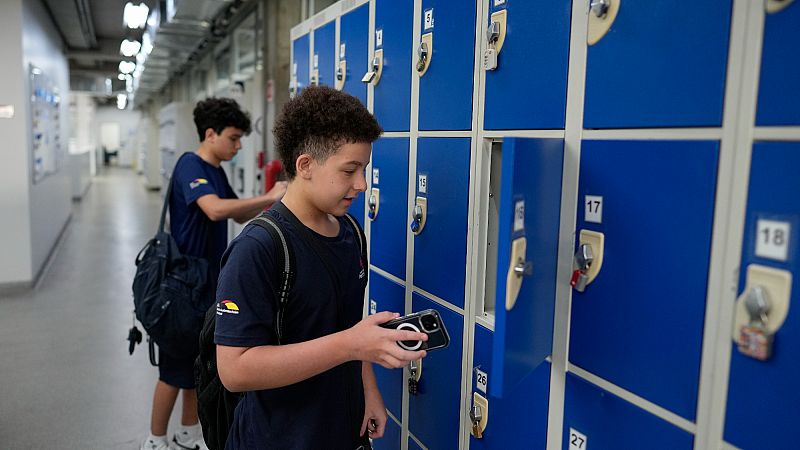New law in Brazil restricts smartphones in schools

A new law comes into effect this week in Brazil that will restrict students' access to their smartphones in schools.
President Luiz Inácio Lula da Silva signed a bill in January limiting smartphone access at schools, in line with a trend seen in the US and Europe.
Phones are limited in classrooms and in the halls, but can still be used for educational purposes, with a teacher's permission, or for students who need phones for accessibility and health.
Schools can set their own guidelines, such as whether students can keep phones in backpacks or store them in lockers or designated baskets.
Most of Brazil's 26 states and roughly two-thirds of all schools in the country had already applied some restrictions to phone use, according to a survey last year by the Brazilian Internet Steering Committee.
However, authorities struggled to enforce them due to the different rules between states and schools.
One of the highest rates of phone use
Brazil’s Ministry of Education said in a statement Monday that the restriction aims to protect students’ mental and physical health while promoting more rational use of technology.
In May, Fundacao Getulio Vargas, a leading think-tank and university, said Brazil had more smartphones than people, with 258 million devices for a population of 203 million Brazilians.
Local market researchers said last year that Brazilians spend 9 hours and 13 minutes per day on screens, which is among one of the world’s highest rates of use.
Mariana Waetge, a 13-year-old student at Porto Seguro, has owned a smartphone for five years.
Being forced to stay away from her phone made her find new ways to interact with friends, improved her focus and even strengthened her relationship with her family, she told the Associated Press.
Today

